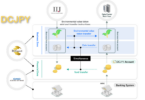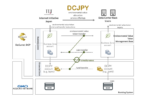German blockchain fashion traceability platform Retraced raised €1 million ($1.2 million) in seed funding from VC firm Samaipata. The investment will be used to improve the cloud-based solution and expand the company.
The platform focuses on tracing sustainable practices in fashion brands’ supply chains to enhance transparency and accountability. One aspect that distinguishes Retraced is that its solutions aim to help brands achieve their sustainability objectives instead of simply providing sustainable claims on their labels.
With so many scandals about bad practices in the fashion industry, consumer demand for transparency is on the rise. This has been reflected in Retraced’s business. Since the Covid-19 pandemic began, the startup signed deals with 40 new brands across the EU and the US. Furthermore, this round of funding follows another successful one a year ago led by Düsseldorf NRW Bank.
“We truly believe we are entering a new era of enterprise transparency towards the end-consumer, given the growing regulatory pressure on compliance management, and the reputational cost of not facing increasing demands from new consumers,” said José del Barrio, founding partner at Samaipata.
“90% of Generation Z affirms that companies are responsible for dealing with social and environmental issues, and we believe there’s an amazing opportunity for a platform play in the space, leveraging on network effects between brands and other stakeholders sharing data and best practices and willing to work together for a fairer supply chain management.”
For sustainable conscious consumers, another advantage of traceability of sustainable practices becoming a norm in the fashion industry is the suppression of greenwashing labels. Many companies like to fill their marketing campaigns with ethical production claims that are often meaningless, if not completely inaccurate. As consumers attach greater value to proof of traceability, more brands are likely to begin investing in platforms like Retraced and will have to change their manufacturing practices.
In fashion, blockchain also provides a compelling anti-counterfeit solution for luxury brands. Initiatives such as Arianee, AURA and Virgo encompass some of the most famous names in the industry, including the LVMH group. Also, blockchain helps maximize logistics efficiencies, especially for managing imports and exports. Spanish fashion brand Desigual recently partnered with startup Finboot for that purpose.
Meanwhile, the World Economic Forum also has a track and trace platform aimed at proving sustainability practices in supply chains. The project is significant because it enables consumers to visualize data from multiple companies from a single source as opposed to brands publishing the data themselves, which can lead to conflicts of interest. Participants include fashion textile suppliers Lenzing Group & Asia Pacific Rayon (APR).
Furthermore, IBM has a partnership with fashion brand Covalent to track and trace its carbon-negative fashion accessories line and e-commerce site Cult Beauty worked with blockchain firm Provenance to provide green credentials for its beauty suppliers.






